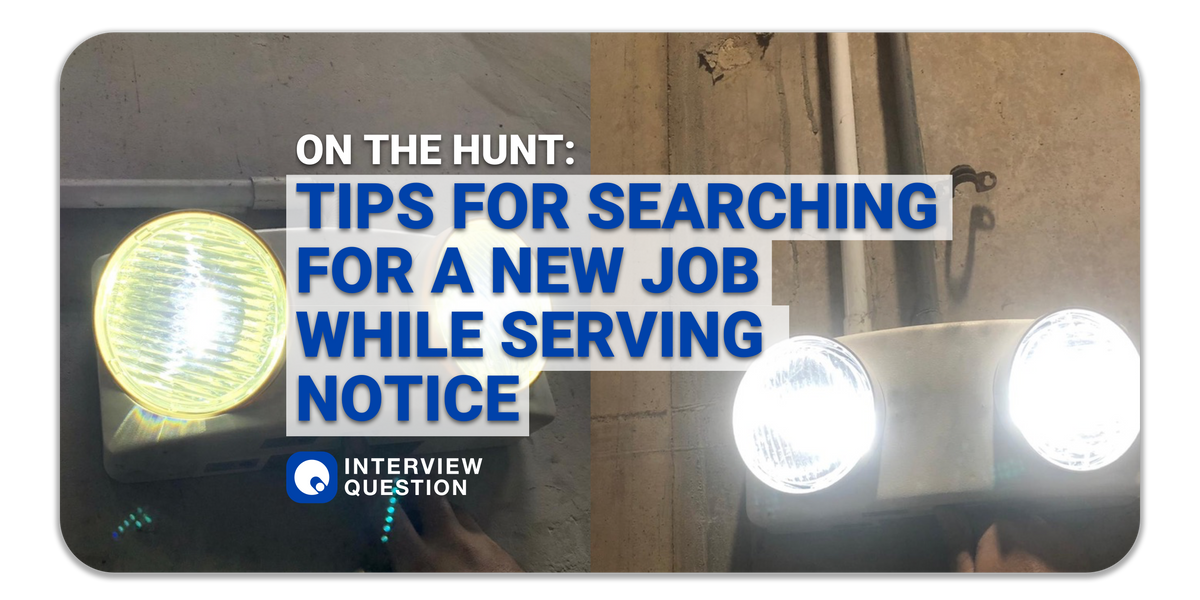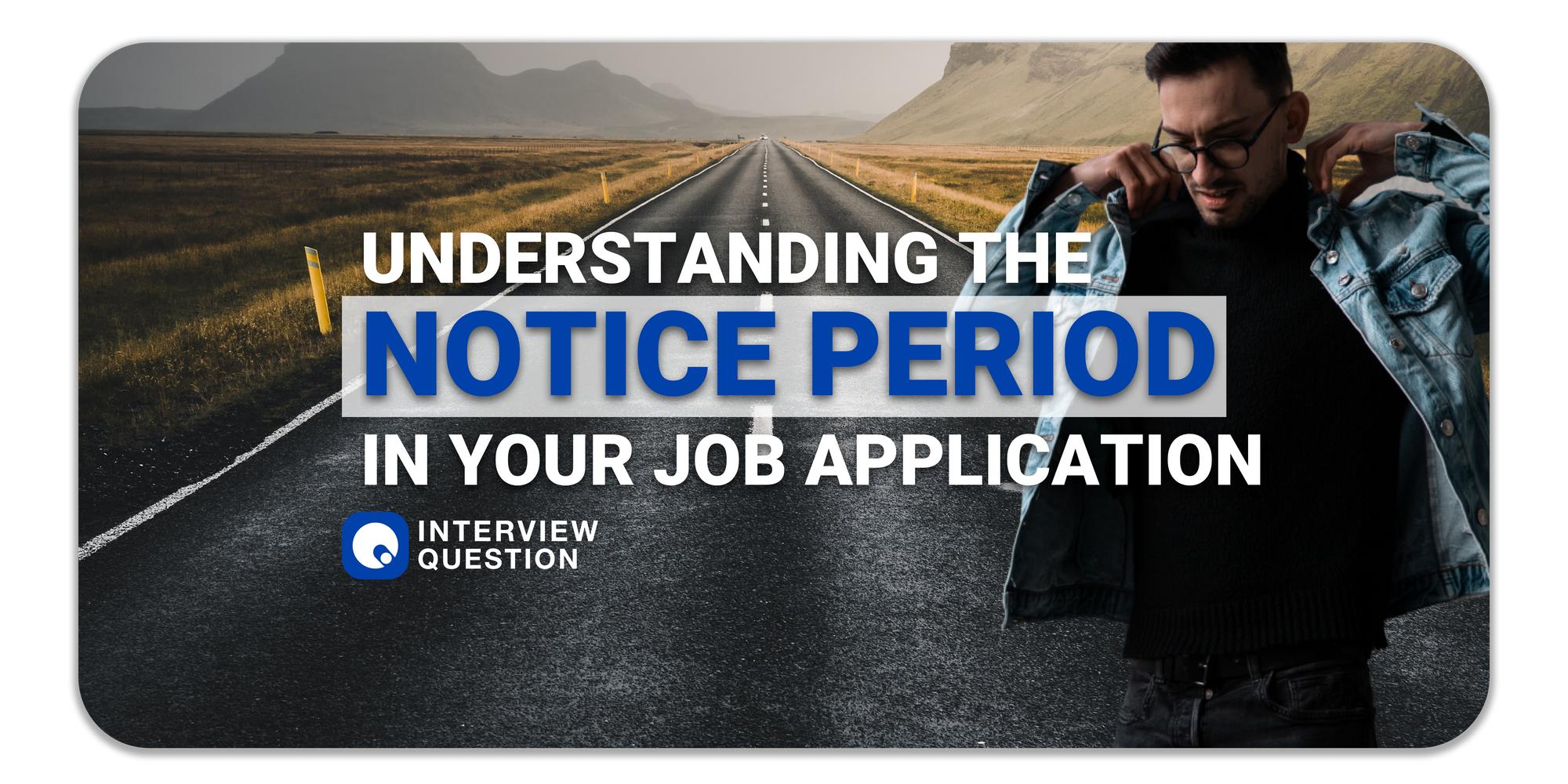On the Hunt: Tips for Searching for a New Job While Serving Notice
If you're on the hunt for a new job, check out these tips for searching while serving notice. From creating a list of priorities to saying goodbye to your current team, this article has everything you need to know about job hunting while giving notice.

The job market is a tough place these days. With so many people out of work, it can be hard to find a new job. If you're currently employed and looking for a new job, you may be wondering how to go about searching for a new job while serving notice. Trying to find the right fit while also serving notice at your current company can be tricky, but it’s not impossible.

Here are some tips to help you search for a new job while still employed:
Keep your search confidential
When searching for a new job, it's important to keep your search confidential. You don't want your current employer to find out that you're looking for another job until you've accepted an offer from another company.
Start your job search early
Don't wait until your last day of work to start looking for a new job. Start your search now so that you can have plenty of time to find the right position. This will give you more time to find the right job and also allow you to keep your current job until you find a new one.
The best time to start a job search and submit job applications is when you feel discomfort in your current role and have some gutfeel thought of quitting. Or if you hear of a rumor of cutting headcount, ongoing firing at another department (and thereafter, colleagues talking about filling up job applications) or a significant reduction of business budgets, it may be a good time to hedge risk by making your resume known to other possible employers.
Having the early head start before you give your notice can increase chances for a successful job hunt.
Use your personal network
When searching for a new job during your notice period, use your personal network of contacts first. Talk to friends, family members, and acquaintances who might know of open positions or companies that are hiring. Contact people who you work with or interact with as well. Reach out to suppliers, vendors, your companies' customers, competitors (who you have personal contact with), physical office neighbours. These people are all part of your network who you can tap into in order to search for a new job. In fact, utilising personal networks is often the best way to find a new position since most jobs are not advertised publicly.
Next, make sure that your resume and LinkedIn profile are up-to-date so that potential employers can learn more about your skills and experience. Use the time at work and at home during your notice period to update your resume - with reduced workload and stress, it should be easier for you to think clearly and effectively.
Also, it is easier to let recruiters find you than to have you find them. Besides, the primary role of the recruiter is to fill up empty spots; it is their job to take most of their day to fill up vacancies - so let them do the work and put in the effort instead of you having to do it.
Be discreet when interviewing
If you do end up interviewing with potential employers while still employed, be discreet about it. Don't schedule interviews during work hours or give too much information away about why you're leaving your current position.
Keep your current employer in mind, don't burn relationship bridges
While you may be eager to leave your current job, it's important to remember that you will need to give notice before leaving. Be respectful of your current employer and don't do anything that could jeopardize your employment during this transition period.
Don't burn bridges - even if you're eager to get out of your current situation, it's important to maintain a positive relationship with your current employer. You never know when you'll need a reference or recommendation down the road.
Be professional in all interactions
Act proper in all communications from your resume and cover letter to networking and interviewing. Even for a friendly, candid phone call, first impressions matter, so put your best foot forward at every opportunity.
Get organized when submitting multiple, simultaneous job applications
Searching for a new job can be overwhelming, so stay organized and focused throughout the process. Keep track of deadlines, applications and follow-ups in one central location (a physical notebook or an online folder) to ensure nothing falls through the cracks. Google Sheets (similar to Microsoft Excel) is a great way to categorise applications, sort details into columns or segments and keep a record. As an online piece of software, Google Sheets is free as long as you own a Google Account and is easily accessible via desktop and mobile web. Plus, you can easily refer to the sorted spreadsheet contents via a mobile app.
Use caution when using social media
If you're active on social media, be careful about what you share regarding your job search. You don't want to tip off your current employer (or future potential employers) too soon about your plans to leave.
Consider temp work if your notice period ends and you are still jobless
If you need income right away, consider taking on temporary work while continuing to search for a permanent position. It is not unusual to be hyped up on hopes to land the job, and then find out you did not get any offer. This happens possibly when you made it to the fourth (and final round) of the interview and believed you did specularly, only to receive a rejection email with "thank you for your interest in this position" email title.
Get some sort of income with temp work first. Engage your time and get some income in the meantime. Whereas for your resume, most applicants choose to omit temp employment if the length of temp employment is short, and so it looks better and less out of place in the overall flow. Reason the gap in employment with taking a personal break, looking after kids/elderly/family, etc. - all of which are entirely reasonable and understandable.
Conclusion
There are many tips on this page, in this website and all over the vast internet. Your quest for answers probably brought you here and some of these tips are great - you probably copied the good ones somewhere offline.
However, collecting a long list of good tips isn't good enough.
There is serious competition out there - most people have Degrees and job hopping is incredibly popular in our lifetimes as people love comparing and can't take the heat. We just can't stay still at a single job.
You should be copying some of these tips but nitpicking them to see which ones fit you. Then practice and practice again and again. Hone your interview skills and make your strong candidacy shine super positively so you can outshine the huge competition.


